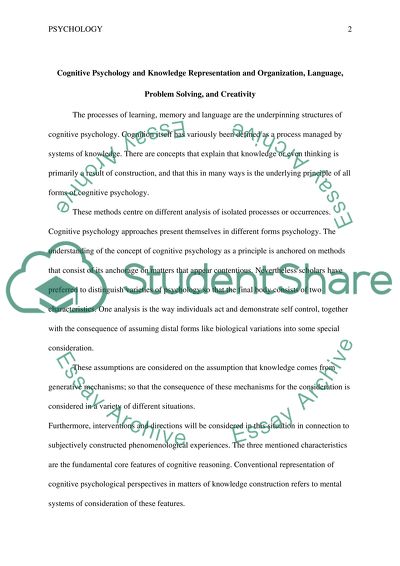Cite this document
(“Cognitive Psychology and knowledge representation & organization, Essay”, n.d.)
Cognitive Psychology and knowledge representation & organization, Essay. Retrieved from https://studentshare.org/miscellaneous/1574741-cognitive-psychology-and-knowledge-representation-organization-language-problem-solving-and-creativity
Cognitive Psychology and knowledge representation & organization, Essay. Retrieved from https://studentshare.org/miscellaneous/1574741-cognitive-psychology-and-knowledge-representation-organization-language-problem-solving-and-creativity
(Cognitive Psychology and Knowledge Representation & Organization, Essay)
Cognitive Psychology and Knowledge Representation & Organization, Essay. https://studentshare.org/miscellaneous/1574741-cognitive-psychology-and-knowledge-representation-organization-language-problem-solving-and-creativity.
Cognitive Psychology and Knowledge Representation & Organization, Essay. https://studentshare.org/miscellaneous/1574741-cognitive-psychology-and-knowledge-representation-organization-language-problem-solving-and-creativity.
“Cognitive Psychology and Knowledge Representation & Organization, Essay”, n.d. https://studentshare.org/miscellaneous/1574741-cognitive-psychology-and-knowledge-representation-organization-language-problem-solving-and-creativity.


